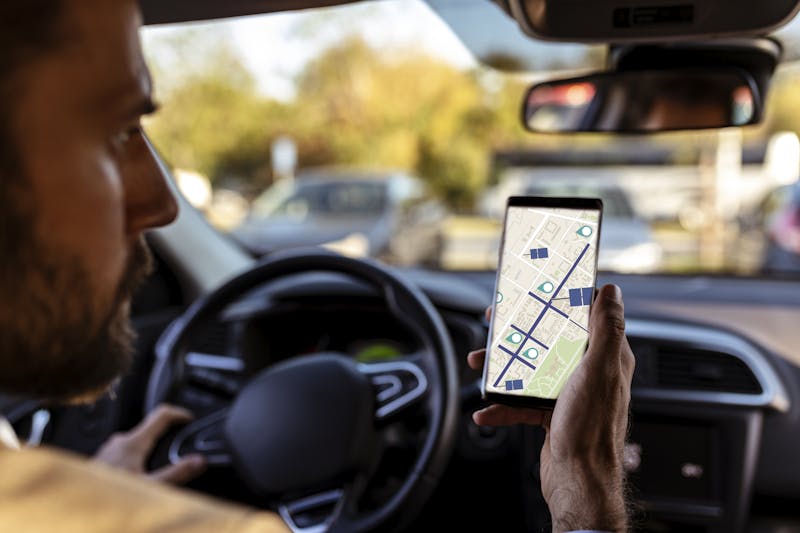
Is It Illegal to Put a GPS Tracker on Someone’s Car in Florida?
In Florida, placing a GPS tracker on someone’s car without their permission isn’t just unethical—it could be a third-degree felony.
Whether you’re suspicious of a spouse, worried about a teen driver, or investigating employee misconduct, it’s essential to understand what the law says about GPS tracking and surveillance. At Carlson Meissner Hayslett, our Florida criminal defense attorneys have defended countless clients across the state facing serious charges stemming from what started as personal concerns—but quickly became criminal investigations.
If you’re thinking about using a tracker, or if you’ve discovered someone is tracking you, read this carefully. The consequences of getting it wrong are severe.
Florida Law on GPS Tracking Devices
Under Florida Statute § 934.425, it is a felony to knowingly install a tracking device or tracking application on another person’s property without their knowledge and consent.
That includes:
- Attaching a GPS device to someone else’s car
- Installing a location-tracking app on someone’s smartphone
- Using tools like Apple AirTags or Bluetooth trackers to follow someone’s movement
Violating this law is a third-degree felony in Florida, punishable by up to 5 years in prison, 5 years of probation, and a $5,000 fine. Even a first-time offender can face life-changing consequences—especially if the tracking is perceived as harassment or stalking.
Common Scenarios That Lead to Felony Charges
At Carlson Meissner Hayslett, our criminal defense lawyers have seen GPS tracking cases arise from:
- A spouse hiding a tracker under a vehicle during a separation or divorce
- An ex-boyfriend secretly tracking a partner’s movements post-breakup
- An employer placing a GPS device on an employee’s personal vehicle
- A parent tracking an adult child or co-parent during a custody dispute
Many people do not realize they’re breaking the law. They assume that shared ownership of the car or concern for a loved one gives them permission to track. But Florida law is clear: if the person being tracked doesn’t consent—or if that consent has been revoked—you could be committing a felony.
Can You Track a Car You Co-Own?
Even if your name is on the title, GPS tracking is not automatically legal. Florida law presumes that consent is revoked once:
- A petition for divorce is filed
- An injunction for protection is entered
- The relationship has broken down and one party no longer wishes to be tracked
In short: marriage or ownership does not guarantee legality. Once consent is gone, continuing to track someone—even your spouse—can expose you to criminal prosecution.
What About Hiring a Private Investigator?
Hiring a licensed Florida private investigator does not protect you from the law.
If you’re not allowed to legally track someone yourself, a private investigator cannot do it on your behalf. Florida law does not give investigators special privileges to violate privacy laws. In fact, if the PI breaks the law, both you and the investigator can be held criminally liable.
Legal Exceptions to GPS Tracking in Florida
There are a few limited exceptions where GPS tracking may be legal:
- Parents tracking their minor children (particularly when the parent owns the vehicle)
- Law enforcement conducting a search under a lawful warrant
- Elderly caregivers or guardians tracking someone with legal authorization
However, these exceptions are narrow and often misunderstood. If you are unsure, do not act without legal guidance.
What Should You Do If You’ve Been Accused of Illegal GPS Tracking?
If law enforcement contacts you about a GPS tracking device, or if you’ve already been charged, your next steps are critical. Do not try to explain your intentions. Even innocent motives can be twisted into a criminal narrative.
At Carlson Meissner Hayslett, our team of experienced Florida criminal defense attorneys will:
- Evaluate whether you had consent or lawful authority
- Investigate whether the evidence is admissible or obtained unlawfully
- Defend your rights aggressively in and out of court
- Work to avoid a felony conviction that could follow you for life
Serving Clients Across the Tampa Bay Region and Beyond
With over 125 years of combined legal experience, our team defends individuals charged with felonies and misdemeanors throughout Florida.
No matter where you’re located, our attorneys are ready to provide a strong legal defense and help you protect your future.
Final Thoughts: GPS Tracking in Florida Carries Serious Risks
Whether you’re dealing with a personal relationship, a custody issue, or concerns about infidelity, taking matters into your own hands with GPS tracking can quickly backfire. Florida law treats unauthorized surveillance as a serious offense—and prosecutors are not afraid to file felony charges.
If you’ve been arrested or suspect you’re under investigation for illegal surveillance, contact Carlson Meissner Hayslett immediately. We’ll fight to protect your rights, your record, and your freedom.
Contact us today to schedule your confidential consultation with an experienced Florida criminal defense lawyer. Let our team guide you through the legal minefield of surveillance laws—and help you move forward with confidence.

